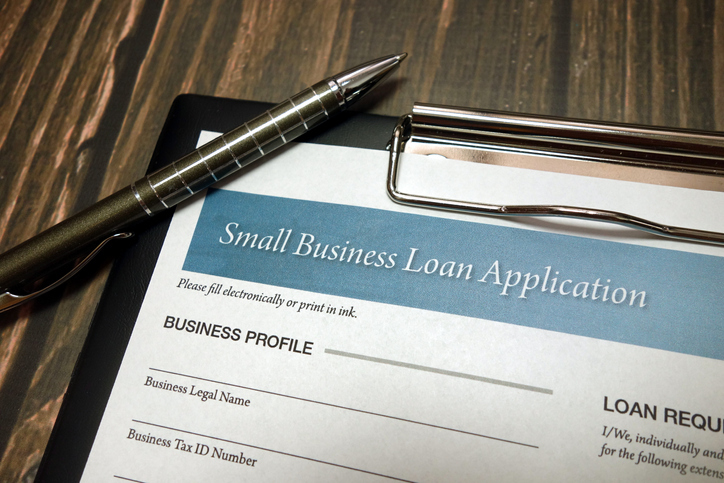
Table of Contents
What are SBA loans?
The Small Business Administration (SBA) is an agency of the federal government whose mission is to support small businesses nationwide. The SBA does not directly underwrite loans but guarantees them up to a certain amount, making the loan less risky for the lender and potentially lowering the loan’s interest rate. SBA charges for the guaranty and the amount is usually included in the loan balance.
The guaranty means that if the borrower is unable to pay the loan back, the government covers a certain percentage of the balance. This lowers the risk for the lender, so that businesses with all kinds of backgrounds and potential profitability can access capital for their businesses. The guaranty ranges from 50% to 85%, depending on the type of the loan.
What are SBA loans?
SBA loans offer a number of advantages over conventional loans:
- Lower interest rates, smaller down payment requirements, and generally friendly loan terms
- Can be used to fund a variety of business expansion strategies, such as the introduction of new product lines, entry into new markets, purchases of real estate or machinery, the addition of seasonal workers, maintenance of cash flow during periods of capital investment, and more
- Additional benefits for veteran-owned businesses

Business Factors & Finance has over 20 years of experience in financial services working with small businesses in the U.S.
On the downside, SBA loans may require a lot of paperwork and can be hard to qualify for, especially if you don’t have help. Business Factors & Finance has over 20 years of experience in financial services working with small businesses in the U.S. and Canada. Contact one of our experts today for help in preparing a winning application.
The Small Business Administration (SBA) does not directly underwrite loans but guarantees them up to a certain amount. Despite that, businesses are often asked to put up all of their available business assets as collateral and sign a personal guarantee.
How to qualify for an SBA loan
A business that wants an SBA loan must be operating for profit in the U.S and must exhaust all other funding options available to it. Also, it must be creditworthy. Creditworthiness is tested using four criteria.
- Repayment ability. A business must demonstrate its ability to meet interest and principal payments on top of its regular outflows. It can do this by creating cash flow statements and a narrative that explains how the loan will be repaid.
- Credit profile. A business credit history should show the ability to timely meet its obligations. If the business has failed to do so at any time, it must be prepared to explain.
- Equity. The owners must show that they have enough “skin in the game” in the form of equity. This means that the value of a business’s assets (what it owns) must be more than its debts. The exact requirement varies depending on the length of time in business and the industry, but established businesses should have no more than $4 of debt for every $1 of equity.
- Management. A lender will want to know about the qualifications, skills and experience of the people who run the business.
The SBA expects that all the business’s unencumbered assets (that is, assets that have not been previously pledged or placed under a lien) will be offered as collateral. If the business’s assets are insufficient, liens can be placed on the business owners’ personal assets. The SBA expects any business owner with 20% or more ownership to sign a personal guaranty, meaning that he or she will be responsible for paying off the remaining principal or interest (after the SBA covers the part it guarantees) after there is a default on the loan.

A business that wants an SBA loan must be operating for profit in the U.S and must exhaust all other funding options available.
A guaranty can be either limited or unlimited:
- Unlimited: The business owner’s personal assets can be seized if a lender pursues loan collection and limited.
- Limited: A limit is set on the business owner’s responsibility for the loan, for example, in terms of the personal assets that can be seized, the dollar value of what can be taken or the time during which the limit applies.
To qualify for a loan, businesses must exhaust all other available options, prove their repayment ability and have sufficient equity. The lenders and the SBA will also evaluate a business’s management and its credit profile.
What documents need to be presented as part of an SBA loan application?
Different lenders ask for different documents, but in general they can include the following:
- Business and personal financial statements
- A business plan
- Collateral that is available to be pledged to the lender
- Financial projections, such as income and cash flow statements
- Legal documents, such as articles of incorporation
- For new businesses, a description of a business that is to be established
Business Factors’ team of experts can help you put together an application for an SBA loan. Contact us today to get started.
What types of SBA loans are available?
Here are some of the most popular types of SBA loans:
- 7(a) loan: The most widely-used SBA loan, the 7(a) can be used for a variety of business purposes, including starting a business, expanding it, or buying an asset. It has multiple subtypes, including an SBA express loan of up to $350,000. This loan offers a 36-hour turnaround once the application has been submitted. The 7(a) loans can run for a longer period of time, such as 10 to 15 years, and interest rates are capped at an SBA-mandated maximum.
- CDC/504 loans: These loans are designed to finance the purchase of fixed assets, such as equipment, machinery and real estate. The maximum amount is $5 million (or $5.5 milion in some circumstances). Eligible businesses must have a net worth lower than $15 million and a 2-year average net income of less than $5 million. They must also benefit their community through job creation or retention. The structure is threefold:
- The business provides a minimum of 10% of the required amount.
- A private lender finances up to 50% of the amount needed. This can be in the form of a conventional loan with market rates.
- A not-for-profit certified development company (CDC) furnishes up to 40% of the amount needed. The CDC finances its portion by selling a fixed-rate bond, which is 100% guaranteed by the federal government.
- Microloan: More of a short-term loan aimed at boosting a business’s working capital. The maximum loan amount is fixed at $50,000. They offer fixed-rate financing and direct loans from nonprofit intermediary lenders.
If you are not approved for an SBA loan, Business Factors can help you find the next best alternative for your business, such as factoring, which is the sale of outstanding invoices to a factoring company, or a revenue-based loan.
What happens if a business is not approved for an SBA loan?
Business Factors can help you find another solution to fund your business. In addition to SBA loans, we offer factoring—the sale of a business’s outstanding invoices to a factoring company—as well as revenue- or asset-based loans. Depending on the needs and the unique financial situation of your business, you may benefit from purchase order financing or a working capital loan.
Contact one of our experts today to find the best funding solution for your business.
Factoring in particular is a good option for businesses that do not qualify for a bank or SBA loan due to a short or problematic credit profile or insufficient time in business. Factoring relies not on the business’s creditworthiness but on its clients’.

Business Factors can help you find another solution to fund your business.
Most factors offer recourse factoring. This means that if an invoice is not paid back within a specified time period, the business must return the advance or replace the invoice with one that has a higher probability of getting paid. Business Factors, on the other hand, buys invoices on a non-recourse basis. This means that if the client that has to pay the invoice defaults or files for bankruptcy, we absorb the loss. A credit assessment is done to ensure that the client has the ability to pay. As noted in our Frequently Asked Questions, factors are not equipped to act as collection agencies and cannot buy past-due invoices.
To learn more about different types of factoring, please visit our Spot Factoring, Non-Recourse Factoring or Small Business Factoring pages.
Conclusion
SBA business loans offer government-backed opportunities to raise business capital on terms that are generally better than business loans in the open market. The Small Business Administration guarantees 50% to 85% of the loan. To be eligible, a business must be operating for profit in the U.S. and must exhaust all other funding options available to it. It must also prove its creditworthiness, based on its ability to repay, credit profile, sufficient equity in the business and the evaluation of its management’s skills and experience. Some of the most popular SBA loans include: 1) 7(a) loans that can be used for a variety of purposes, including funding an acquisition; 2) CDC/504 loans to fund fixed assets’ purchases and 3) microloans of up to $50,000 to improve working capital.
SBA business loans are not necessarily easy to get, especially if you don’t have assistance. Business Factors specializes in helping business put together a winning application package making it easier to qualify for an SBA loan. If you are not approved, we are also able to offer other products, such as factoring or revenue-based loans. Contact one of our executives today to get started.

Improve Your Cash Position
Get a Risk-Free quote from Business Factors for immediate working capital and 24/48 hour invoice factoring


